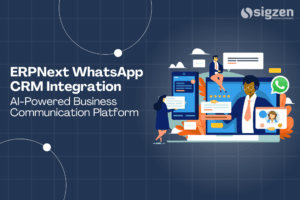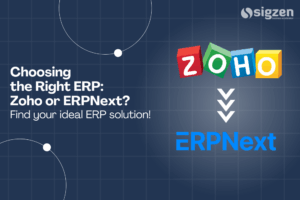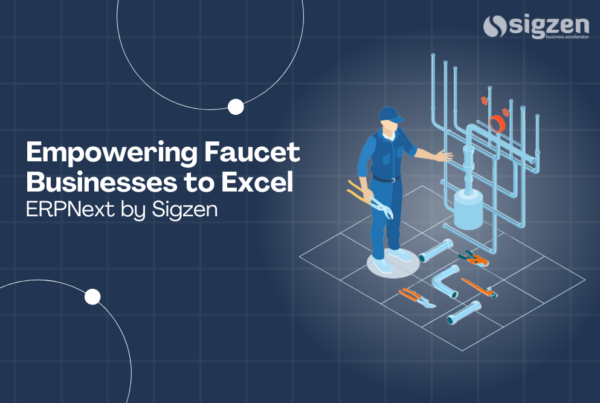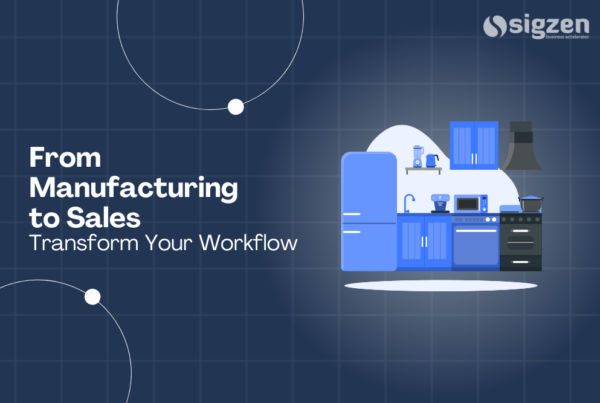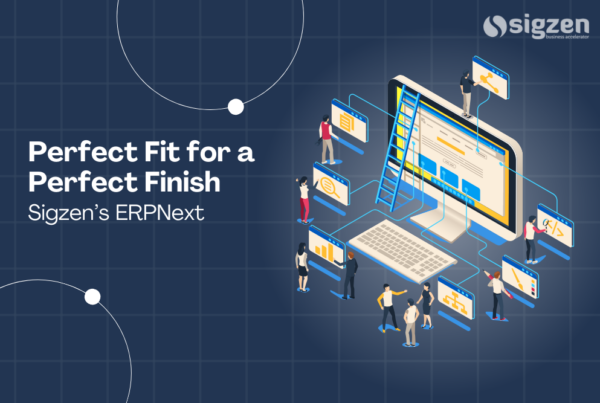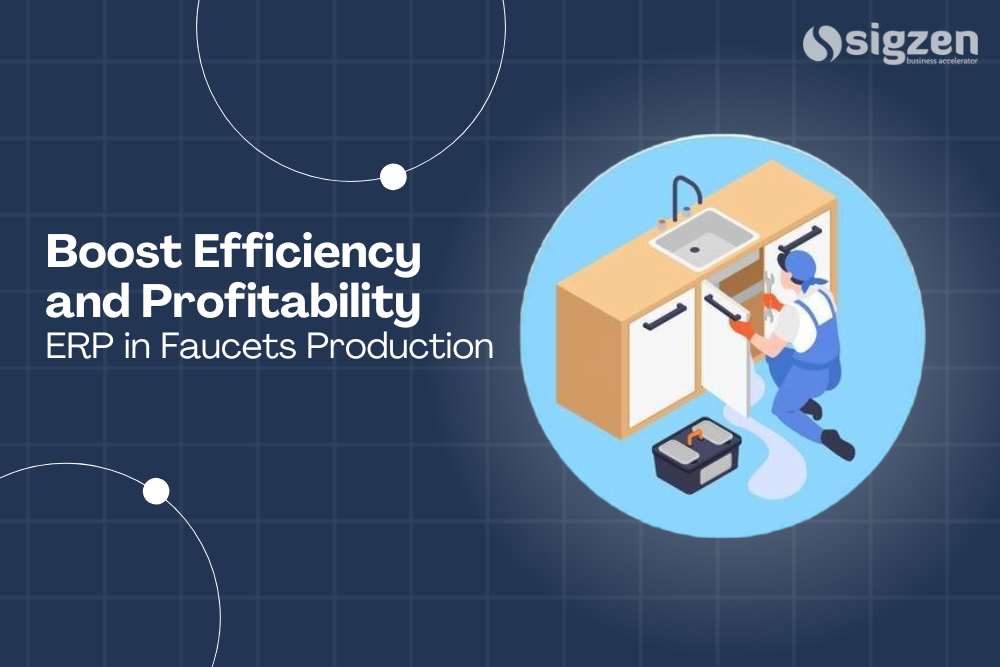
Introduction: A Paradigm Shift for Faucet Manufacturers
Faucet manufacturing, a sector steeped in precision engineering, faces increasing challenges due to shifting customer demands, regulatory compliance, and global competition. Amid these complexities, one technology stands out as a transformative solution: ERP for Faucet Manufacturing. This comprehensive system streamlines processes, enhances operational visibility, and optimizes resource allocation, enabling manufacturers to thrive in a competitive landscape.
By integrating modules for inventory management, quality assurance, and production planning, ERP systems tailored to faucet manufacturing offer a unique edge. This article explores the nuances of ERP systems in the faucet manufacturing sector, demonstrating their indispensability in achieving efficiency and scalability.
What Makes ERP Essential for Faucet Manufacturers?
Faucet manufacturing involves intricate processes, from material procurement to product assembly and distribution. Traditional approaches often result in operational silos, inefficient resource utilization, and costly delays. Here’s how an ERP system specifically addresses these pain points:
1. Streamlining Inventory Management
An ERP system ensures precise inventory control, preventing overstocking and material shortages. Advanced features allow manufacturers to:
- Monitor real-time inventory levels.
- Automate reordering based on production forecasts.
- Optimize warehouse layouts to reduce handling times.
Example: Using ERP, a faucet manufacturer can automatically replenish brass stocks when inventory drops below a predefined threshold.
2. Enhancing Production Planning
ERP systems integrate production schedules with material availability and workforce capacity, ensuring seamless operations. Benefits include:
- Improved lead time predictions.
- Reduction in production downtimes.
- Enhanced visibility into manufacturing workflows.
3. Quality Control Integration
Quality assurance is critical in faucet manufacturing to meet industry standards and avoid costly recalls. ERP solutions like ERPNext offer:
- Automated quality checks during production.
- Non-conformance tracking to identify defects.
- Comprehensive reporting for compliance audits.
4. Optimizing Resource Utilization
By providing insights into machine utilization and workforce efficiency, ERP systems help manufacturers:
- Reduce idle times.
- Minimize energy consumption.
- Ensure optimal resource allocation.
Key Features of ERP for Faucet Manufacturing
Tailored ERP systems, such as those provided by Sigzen, come equipped with features designed to address the unique challenges of faucet manufacturers:
1. Advanced Manufacturing Module
This module supports bill of materials (BOM) management, production orders, and workstations. For detailed insights, refer to ERPNext Manufacturing Module.
2. Integrated CRM
A robust CRM system ensures seamless communication between manufacturers and their clients. Features include:
- Automated follow-ups for order updates.
- Centralized customer data for personalized service.
- Sales forecasts based on historical data.
Explore more in ERPNext CRM Module.
3. Real-Time Reporting
From financial dashboards to production analytics, ERP systems provide actionable insights. Benefits include:
- Enhanced decision-making capabilities.
- Identification of cost-saving opportunities.
- Performance tracking against KPIs.
4. Compliance Management
ERP systems help faucet manufacturers adhere to regulatory standards, ensuring:
- Proper documentation for audits.
- Compliance with environmental and safety regulations.
- Accurate tracking of hazardous materials.
Benefits of Implementing ERP for Faucet Manufacturing (Elaborated)
1. Reduced Production Costs
ERP systems streamline operations by eliminating redundancies and automating time-consuming manual processes. For faucet manufacturers, this means optimizing resource allocation, minimizing waste, and improving productivity. Key aspects include:
- Inventory Optimization: By accurately tracking raw materials like brass and steel, ERP systems prevent overstocking or understocking, reducing holding and procurement costs.
- Process Automation: Replacing manual production schedules with automated workflows eliminates errors and reduces labor costs.
- Waste Reduction: By integrating quality checks into the manufacturing cycle, ERP solutions identify defects early, preventing costly rework or product recalls.
- Energy Savings: Monitoring machine utilization helps reduce idle times and optimize energy consumption during manufacturing.
For example, a faucet manufacturer using an ERP system can identify bottlenecks in production that lead to excessive overtime costs, addressing the issue proactively and saving operational expenses.
2. Improved Customer Satisfaction
Customer satisfaction is crucial in faucet manufacturing, where delays or quality issues can significantly impact brand reputation. ERP systems enhance customer satisfaction in the following ways:
- Real-Time Order Tracking: Customers can stay updated on the status of their orders through integrated ERP portals, improving transparency and trust.
- On-Time Deliveries: By syncing production schedules with demand forecasts, ERP systems ensure that finished products are delivered on schedule.
- Quality Assurance: Automated quality control ensures that each faucet meets high standards, reducing customer complaints or returns.
- Personalized Service: Integrated CRM modules store detailed customer profiles, enabling manufacturers to offer tailored recommendations or solutions.
For instance, a faucet manufacturer can use ERP-driven insights to anticipate customer needs, such as a demand surge for specific faucet designs during seasonal construction booms, ensuring timely production and delivery.
3. Scalability
One of the standout features of ERP systems is their ability to grow with a business, supporting scalability in a competitive market. For faucet manufacturers, scalability is vital as they expand operations or enter new markets. ERP systems enable:
- Multi-Location Operations: Centralized data management allows manufacturers to operate seamlessly across multiple factories or warehouses.
- Demand Forecasting: ERP solutions analyze historical data to predict demand surges, ensuring that production scales efficiently.
- Resource Planning: Whether it’s hiring more workers or procuring additional raw materials, ERP systems ensure resources are scaled proportionally with business growth.
- Global Integration: ERP systems with multilingual and multi-currency capabilities allow faucet manufacturers to expand into international markets effortlessly.
For example, a small faucet manufacturer transitioning into exporting products internationally can use ERP systems to manage varying tax regulations, exchange rates, and shipping logistics without disruption.
4. Enhanced Data Security
In an era of increasing cyber threats, safeguarding sensitive business data is non-negotiable. ERP systems prioritize data security, offering advanced features that ensure the confidentiality and integrity of information. Benefits for faucet manufacturers include:
- Role-Based Access Control (RBAC): Restricts data access based on user roles, ensuring only authorized personnel can view or modify critical information.
- Data Encryption: Protects sensitive information, such as customer details and financial records, from potential breaches.
- Secure Cloud Storage: Many ERP systems are cloud-based, providing automatic backups and disaster recovery to prevent data loss.
- Audit Trails: ERP systems maintain detailed logs of all user activities, making it easier to detect unauthorized access or suspicious behavior.
For instance, a faucet manufacturer storing designs for proprietary faucet models can ensure that only authorized personnel can access this intellectual property, safeguarding it from theft or industrial espionage.
How ERPNext Stands Out for Faucet Manufacturing
ERPNext, a leading open-source ERP solution, provides unparalleled customization and scalability. Here’s why it’s an excellent choice for faucet manufacturers:
- Comprehensive Modules: From inventory to project management, ERPNext covers all critical aspects. Refer to its Inventory Module for more details.
- Cloud-Based Accessibility: ERPNext allows users to access data from anywhere, ensuring operational continuity.
- Cost-Effectiveness: Its open-source nature ensures affordability without compromising on features.
Explore ERPNext’s features further on their official documentation page.
Real-World Success: A Faucet Manufacturer’s Journey with ERP
Case Study: A mid-sized faucet manufacturing company in the USA implemented Sigzen’s ERP solution to address inefficiencies in inventory management and production scheduling. Within six months, the company reported:
- A 20% reduction in material wastage.
- A 15% improvement in production efficiency.
- Enhanced customer satisfaction due to timely deliveries.
Implementing ERP for Faucet Manufacturing: Best Practices
- Define Clear Objectives: Identify key challenges and goals for ERP implementation.
- Choose the Right Vendor: Opt for providers like Sigzen that offer industry-specific solutions.
- Train Your Workforce: Ensure employees are well-versed in using the ERP system to maximize benefits.
- Monitor Performance: Use real-time reporting tools to track ROI and make data-driven improvements.
Common Myths About ERP for Manufacturing
1. ERP is Only for Large Enterprises
Modern ERP solutions are scalable, making them suitable for small and medium-sized businesses.
2. ERP Implementation is Too Expensive
Open-source options like ERPNext provide cost-effective solutions without sacrificing functionality.
3. ERP is Too Complex to Use
User-friendly interfaces and comprehensive training programs simplify ERP adoption.
Conclusion: Why ERP is Non-Negotiable for Faucet Manufacturers
ERP systems have revolutionized the faucet manufacturing industry by addressing critical pain points and driving efficiency. By investing in solutions like those offered by Sigzen, manufacturers can enhance productivity, ensure quality, and achieve long-term growth.
Discover how Sigzen’s ERP solutions can transform your faucet manufacturing business. Request a demo today.

